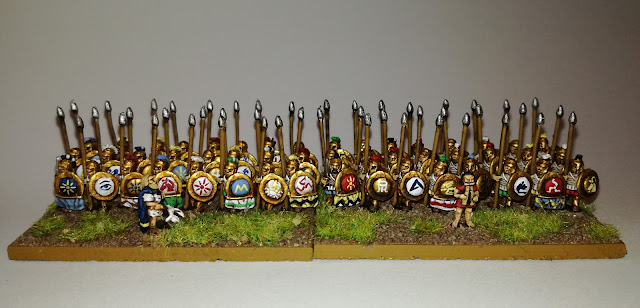Trial companies for Rebels and Patriots

With the release of Dan Mersey and Michael Leck's Rebels and Patriots , I've dug out my 15mm 18th and 19th century miniatures to build two trial companies. I'll not go into a full review (there are plenty out there, here is Karawansary's , and ilivewithcats' ); these read like another elegant set of rules, building on Dan's 'Rampant' series, and firmly rooted in the black powder period. First up are the 27th Inniskilling Fusiliers - my local regiment - for the French and Indian War (1754-1763). The 'Skins' had previously fought in the West Indies (1739-1740), against the Jacobites in Scotland (1745-1746), and then were sent to Canada where they fought from 1758-1761, before redeploying back to the West Indies until 1762 when they returned to New York. Although Rebels and Patriots is framed for games in the American conflicts of the 18th and 19th centuries, all the elements are there for more diverse conflicts in the period. Troop





